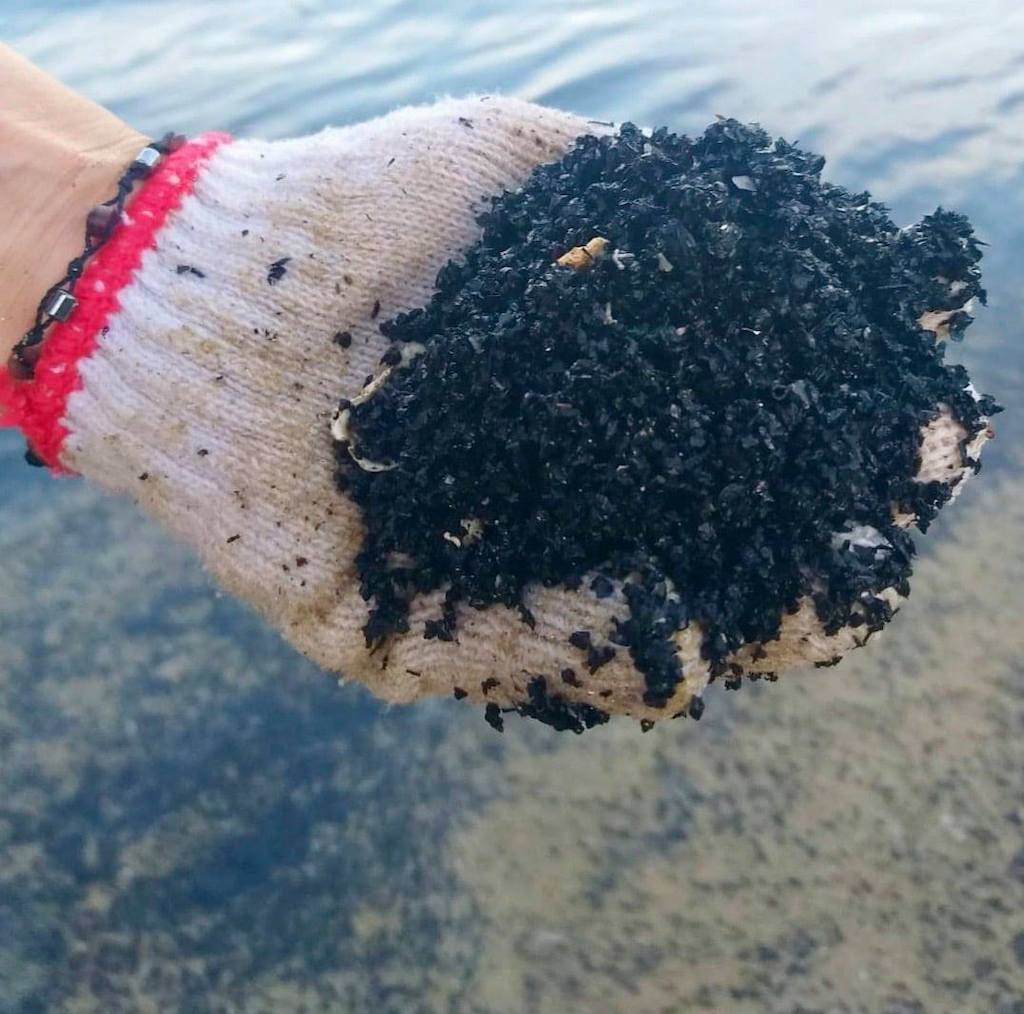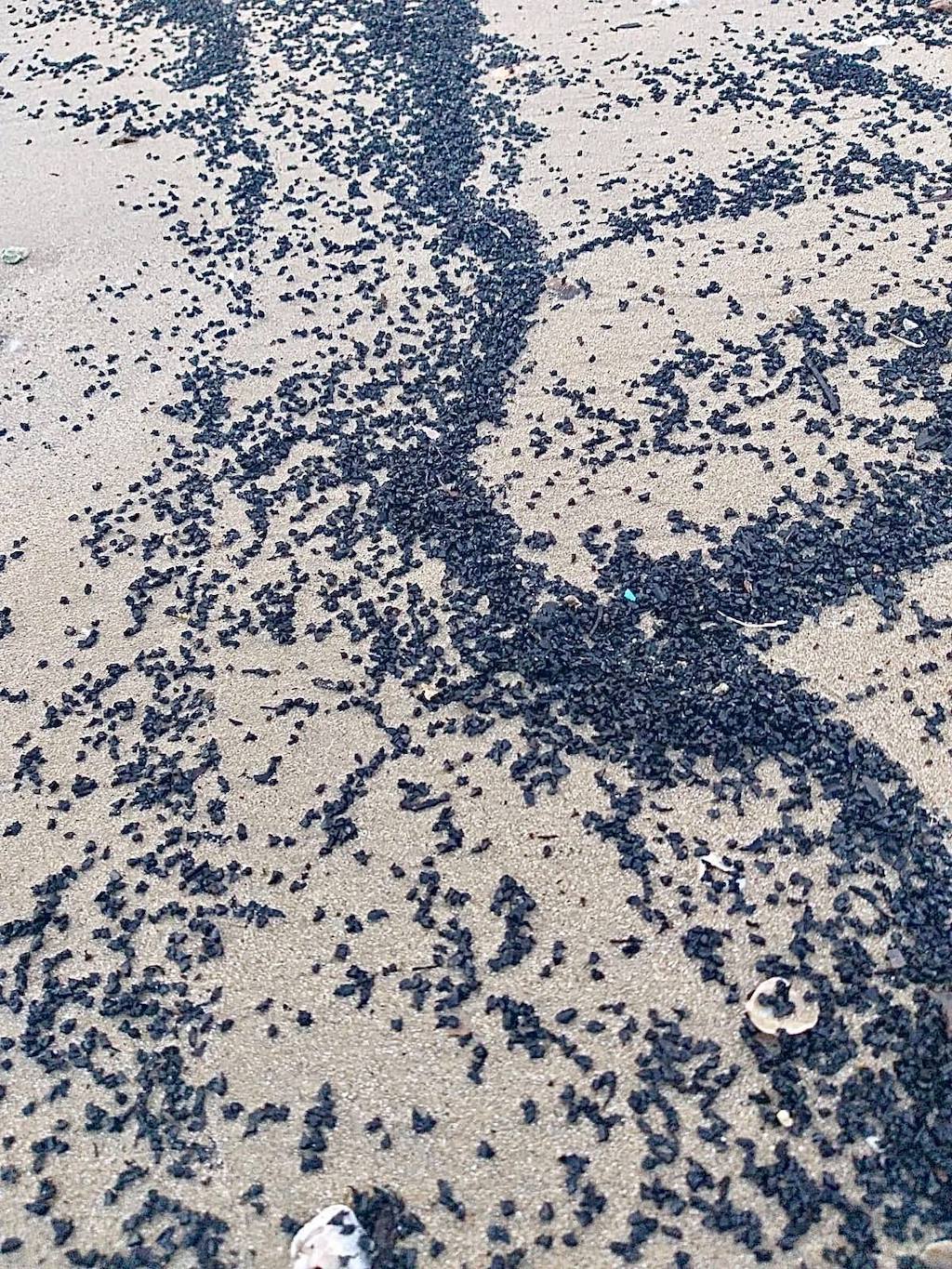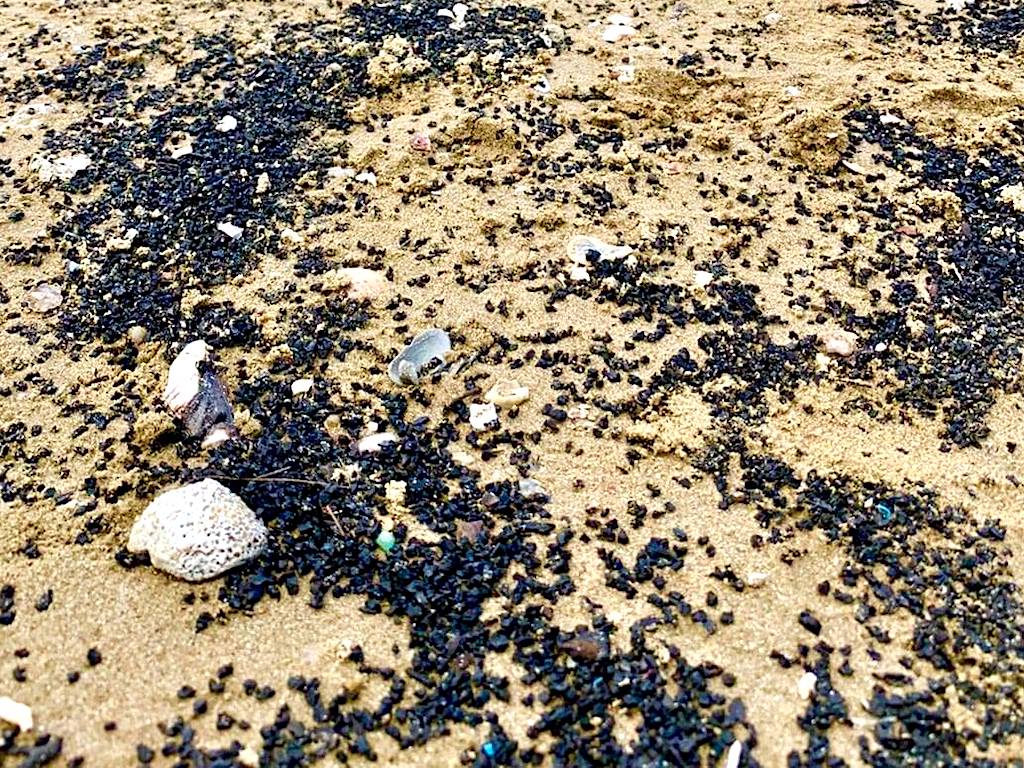3 Mins Read
Hundreds of kilograms of black rubber crumbs, which looks like infill used for astroturf, has washed ashore on Discovery Bay on Hong Kong’s Lantau Island. It was discovered by local environmental organisation Plastic Free Seas who alerted the authorities to the spill, which could severely harm marine life.
Huge quantities of small crumbs of black rubber or tyre-like material have washed up on the shores of Discovery Bay on Lantau Island on July 28. Dana Winograd, the director of operations of Plastic Free Seas, believes that the material appears to be crumbs used for the infill for astroturf, the artificial ground for sports playing.
“The rubber crumb is often made from recycled car tyres and scientific studies have shown serious adverse impacts to marine life in water that is polluted by the rubber and associated chemicals,” wrote the group in a social media post.
Winograd and other volunteers used sieves and mesh nets to collect the substance from the sea surface, seabed and the shoreline, and reported the spill to the authorities. The Marine Department eventually responded to the reports, and by noon the following day, contractors sent by the department collected an estimated 245 kilograms of the debris, while Plastic Free Seas recovered around 180 kilograms.

The source of the pollution is still unknown, but the Environmental Protection Department (EPD) has been requested to investigate.
According to Winograd, the government does not have a response plan put in place for such environmental spillages. Though an interdepartmental task force called Clean Shorelines had been set up after the plastic pellet spill in 2012, it appears as though it hasn’t been able to launch an appropriate emergency reaction this time round and help only eventually came from the government.
“I would’ve hoped that they would’ve learnt something from then and had more of an emergency response system in place for this sort of situation,” Winograd told RTHK.
Earlier this year, Green Queen reported on the shocking numbers of disposable face masks littered across a 100-metre-long beach in Hong Kong found by local marine conservation NGO OceansAsia.
The rubber crumb is often made from recycled car tyres and scientific studies have shown serious adverse impacts to marine life in water that is polluted by the rubber and associated chemicals.
Plastic Free Seas
Marine debris can cause injuries and even kill sea and coastal wildlife, as well as damaging their natural habitats. They can either be entangled in debris, or in this case with smaller pellets, marine animals can accidentally ingest the crumbs and cause suffocation, starvation and drowning.
Research has indicated that as many as half of the global sea turtle population have ingested plastic waste.

Beyond harming marine life, plastic ocean pollution can impact human health. The scale of microplastics in the ocean is so severe that traces of plastics have been detected from everywhere from sea spray to sea salt, where these substances enter back into the human food chain.
While this specific instance of ocean pollution appears to have been caused by a large-scale spill, with particulars of its origins still unknown, much of the global plastic waste is fuelled by the world’s pervasive throwaway culture, which has fuelled the rise in disposable plastics.
Low-value sachets for products such as condiments and other personal care items alone contribute as much as 855 billion individual pieces of plastic waste every year.
Recently, scientists have estimated that even if the world cuts back on plastic use by 80%, there will still be an astonishing 710 million tonnes of plastic pollution that we will have to tackle by 2040.
All images courtesy of Plastic Free Seas.




